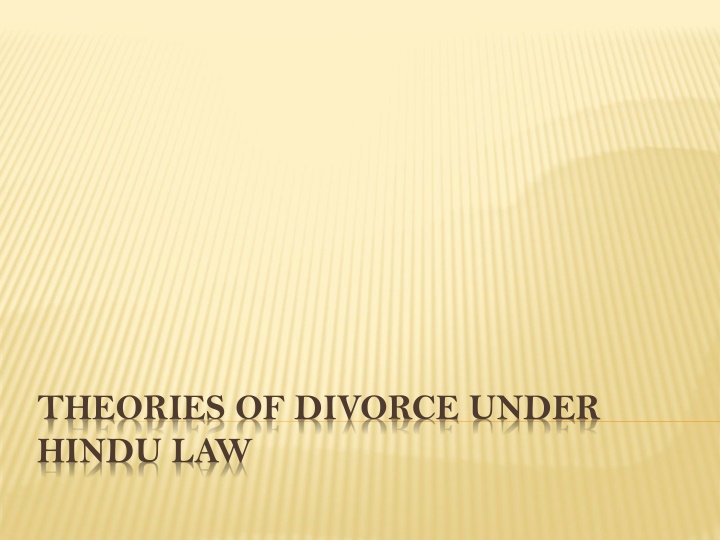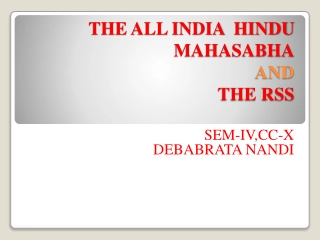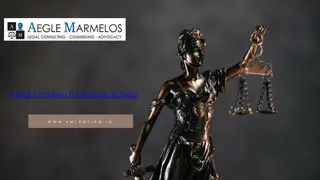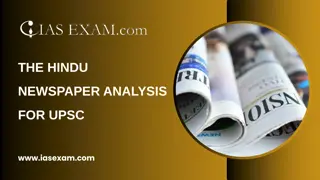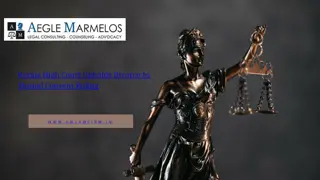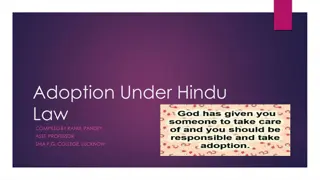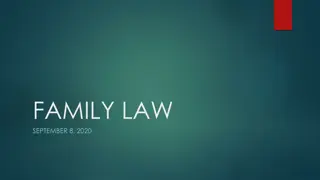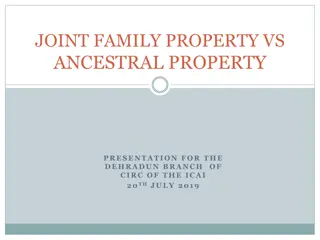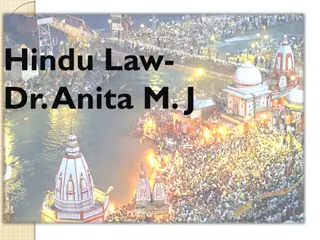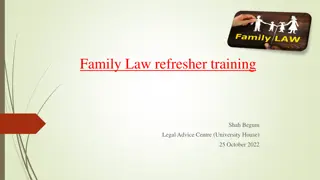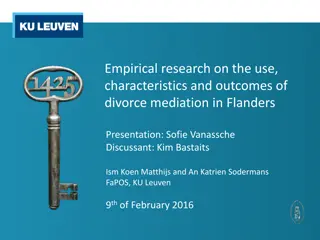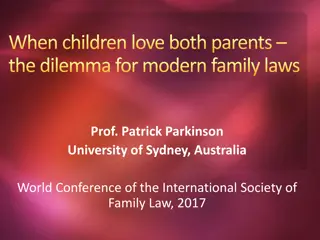Theories of Divorce Under Hindu Law
Exploring the meaning of divorce under Hindu law, this article discusses the theories of divorce, including Fault Theory, Mutual Consent Theory, and Irretrievable Breakdown of Marriage Theory. These theories reflect the evolution of the concept of divorce within the Hindu Marriage Act of 1955, allowing for dissolution based on fault, mutual consent, or irretrievable breakdown of the marital relationship.
Download Presentation

Please find below an Image/Link to download the presentation.
The content on the website is provided AS IS for your information and personal use only. It may not be sold, licensed, or shared on other websites without obtaining consent from the author.If you encounter any issues during the download, it is possible that the publisher has removed the file from their server.
You are allowed to download the files provided on this website for personal or commercial use, subject to the condition that they are used lawfully. All files are the property of their respective owners.
The content on the website is provided AS IS for your information and personal use only. It may not be sold, licensed, or shared on other websites without obtaining consent from the author.
E N D
Presentation Transcript
THEORIES OF DIVORCE UNDER HINDU LAW
MEANING OF DIVORCE Divorce means dissolution of competent authority. Which was unknown to the ancient hindu law as the institution of marriage was considered as sacramental and eternal union which could not be dissolved. It was introduced after codification of hindu law. marriage by
The term divorce is derived from the latin word divortium which means to turn aside or to separate or it can be understood simply legal termination the matrimonial husband and wife. bond between Section 13 of Hindu marriage Act, 1955 deals wit it.
THEORIES OF DIVORCE FAULT THEORY MUTUAL CONSENT THEORY IRRETRIEVABLE BREAKDOWN OF MARRIAGE THEORY
FAULT THEORY The fault theory is also been known as the offences theory or the guilt theory. The existence of guilt (commission of matrimonial offence) of one party and innocence of other is essential. Only the innocent party can seek remedy of divorce under this theory. Whereas no remedy will be available if both the party of marriage is in fault.
MUTUAL CONSENT THEORY Mutual consent theory is the second theory of divorce. The rationale behind it is that since two persons can marry by their free will, they should also be allowed to move out of the relationship of their own free will. This theory is criticized on the ground that it will promote immorality as it might leads to hasty divorces on slight incompatibility too. The
IRRETRIEVABLE BREAKDOWN OF MARRIAGE THEORY The theory of marriage is third theory of divorce. The breakdown of marriage is defined as : such failure in the matrimonial relationships or such circumstances adverse to that relationship that no reasonable probability remains for the spouses again living together as husband & wife. Such marriage should be dissolved with maximum fairness & minimum humiliation. irretrievable breakdown of the bitterness, distress &
All the three theories of divorce are recognized under modern hindu law. Divorce can be obtained on the basis of any one of them. The Hindu Marriage Act, 1955 originally, based divorce on the fault theory, and enshrined nine fault grounds in Section 13(1) which can be invoked by either party of marriage. Two fault grounds in Section 13(2) on which wife alone could seek the divorce.
In 1964, by an amendment, certain clauses of Section 13(1) were amended in the form of Section 13(1A), thus recognizing two grounds of the breakdown of the marriage. The 1976 amendment additional fault grounds of divorce for wife & a new section 13B for divorce by mutual consent. Act inserted two
